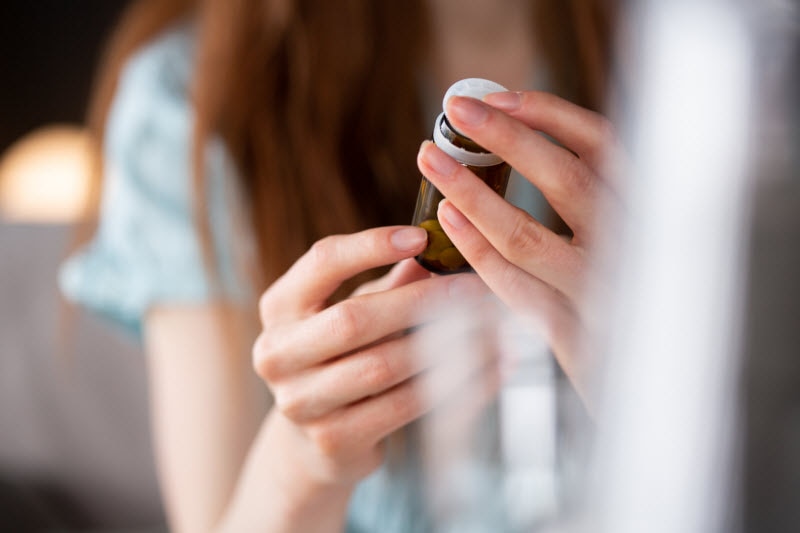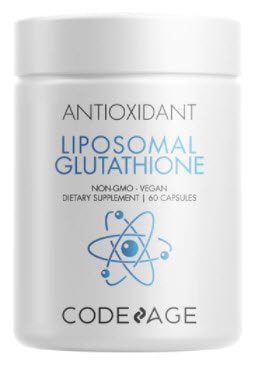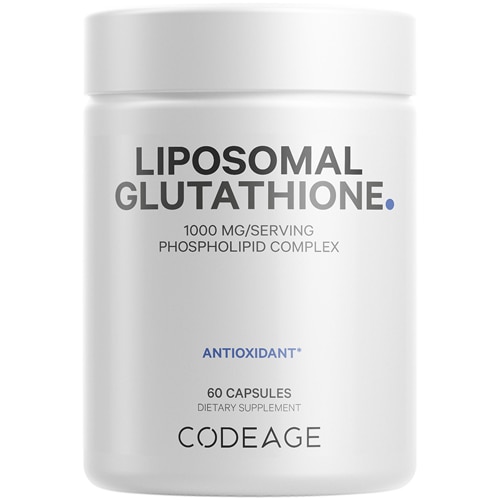Glutathione is an essential molecule in the body produced in the nerve cells of the central nervous system (CNS) and liver. It’s made of three amino acids, l-glutamate, glycine and l-cysteine. In the body, glutathione helps break down nutrients in food such as carbohydrates, fats and proteins. It also regulates immune response and functions as an antioxidant, helping to protect against oxidative stress.
 Benefits of glutathione for exercise performance
Benefits of glutathione for exercise performance
During
exercise, glutathione is used to help muscles contract. It is involved in aerobic energy metabolism, meaning it allows your body to turn nutrients into energy (specifically lipids, amino acids and carbohydrates).
Glutathione’s role in energy
metabolism means that with low levels, you may not have as much energy to get through your workouts, affecting your performance and recovery.
Research shows that supplementing with glutathione can support athletic performance and physical conditioning.
†
Additionally, if you perform long bouts of exercise or participate in new forms or intensities of your workouts, oxidative stress may be an issue for you. Having enough glutathione -- an antioxidant that helps combat oxidative stress -- is a way to protect your body at a cellular level from potential damage caused by exercise-induced free radicals.
†
Keep in mind, too, that exercise – which is a stressor on the body – may deplete your body’s stores of glutathione. While exercise is a healthy form of physical stress, active individuals often need increased amounts of some nutrients to support the body’s overall well-being.
How to maintain healthy glutathione levels
The good news is that there are several things you can do to ensure your glutathione levels are healthy.
Limit alcohol
Alcohol consumption isn’t necessarily all bad, but it can contribute to the body’s toxic load, requiring glutathione to work overtime. As well, alcohol damages your body’s structures when overconsumed,
including your lungs.
Your lungs need glutathione to work optimally and alcohol consumption can deplete stores, leading to a risk of respiratory distress.
Keeping a limit on your alcohol consumption can help prevent the need for more glutathione than your body can keep up with.
Reduce exposure to POPs
POPs are
persistent organic pollutants present in conventionally grown foods due to pesticides, plant disease control and crop production. They are also created by burning trash, either by industrial means or in your backyard.
POPs
increase your body’s need for glutathione, which means levels need to be higher the more you are exposed to these pollutants. Limiting your exposure to them will reduce the amount your body requires to keep you healthy.
Include sulfur-rich foods
Sulfur is a mineral found in food and is the
seventh most abundant mineral in the human body. The mineral is involved in protein synthesis and other metabolic processes, including the synthesis of glutathione.
Consuming foods rich in sulfur helps to boost glutathione levels in your body. This effect is likely due to the sulfur molecules found in glutathione. As well, consuming foods rich in the amino acid methionine, which contains sulfur, will boost sulfur intake. In fact, methionine-containing foods are the
primary supply of sulfur for humans.
Foods that boost sulfur intake include:
- Broccoli, Brussels sprouts, bok choy, cauliflower, arugula, cabbage, collard greens and other cruciferous vegetables
- Garlic, onions, leeks, chives and other alliums
- Chickpeas, beans, peanuts, peas, lentils and other legumes
- Almonds, walnuts, pecans, cashews and other nuts
- Fish, beef, chicken and other lean protein sources which contain methionine
Get enough vitamin C
Vitamin C-rich foods will also support healthy glutathione levels. Since vitamin C is an antioxidant, it takes on the job of fighting oxidative stress from free radicals so that glutathione levels are spared.
What’s more, vitamin C
converts oxidized glutathione into a usable form once again, shoring up your levels naturally. Consuming a diet high in fruits and vegetables is an easy way to get enough vitamin C since it is plentiful in produce.
Increase selenium containing foods
Selenium is another essential mineral for ensuring your glutathione levels remain healthy. Selenium is a cofactor of glutathione, meaning they work together to function properly.
Glutathione levels can remain stable and active if selenium is in good supply. Adding beef, fish, organ meats like liver, some dairy products, and Brazil nuts will help you get enough selenium. Aim for at least 55 mcg per day, as recommended by the
National Institutes of Health.
Get better sleep
Lack of sleep quantity and quality could affect your levels of glutathione. Being sleep-deprived wears on your body and increases the damage from
oxidative stress, which means your natural glutathione is used to defend your body from this stress,
reducing your levels.
Practicing sleep hygiene with a solid bedtime routine that gets you ready to sleep while also reducing stress is a good idea. Try to get to bed and wake up at the same time each day, avoid screens and bright light an hour or two before bed, and keep your room cool and dark.
Try a glutathione supplement
Some supplements can help support glutathione levels. It’s important to note that when supplementing directly with glutathione, the optimal method is either through liposomal delivery or IV.
Here are a few supplements that can help:
†These statements have not been approved by the Food and Drug Administration. These products are not intended to diagnose, treat, cure or prevent disease.
Featured Product

 Benefits of glutathione for exercise performance
Benefits of glutathione for exercise performance



